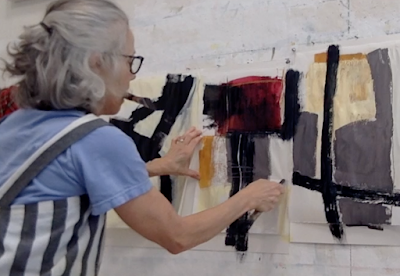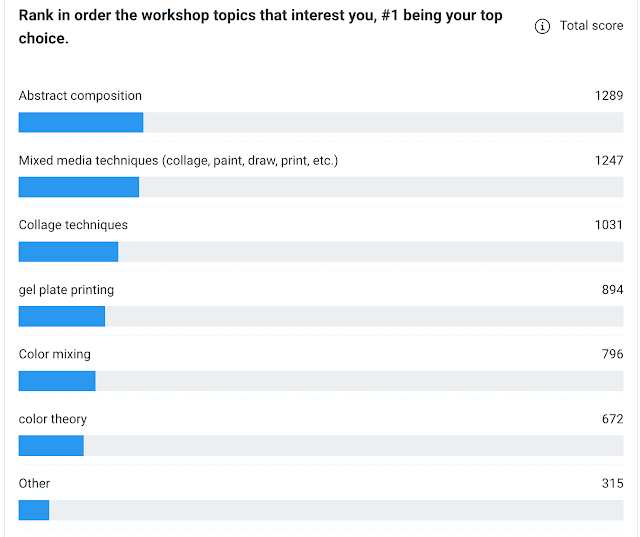Commitment to process is an important key to getting unstuck. We have a habit of focusing on results, setting expectations, and making judgements accordingly. We want to know how things will turn out; we want to avoid uncertainty by planning, so that we get it ‘right’. While this habit of planning for results is essential for most activities in our lives (I don’t dispute the value of planning!), it does seem to be one of the main reasons that we get stuck as artists.

Making some marks, the first layers, with no plan.
Of course we can plan out a painting go through the steps, and get the result we expect. Some people can. When I try to do this my result is not satisfying. I feel like I've missed it, and the painting looks - and is - superficial. At times in my early painting career I tried following instructions in a book. I knew instinctively that it would not result in something that felt authentic, but allowing the benefit of the doubt and figured I'd learn something. I didn't. Well, I did learn that I was right about it not feeling authentic. Following step-by-step instructions that focused on a particular result was not a satisfying endeavor. It lacked something essential to making real art. Does this sound familiar?
For me it takes periodic RE-commitment to process to stay connected authentically with my work. The tendency towards planning and results orientation is tenacious, and it creeps up unnoticed until I get stuck. I have a few tricks for getting back into my groove:
I am offering a short Zoom session on 5 Ways to Get UN-Stuck to share with you my favorite practices that get me back to a focus on process. See details and sign up here.
 |
| Painting 'parts' that I will use in collage. |
.jpg) |
| "Letting Loose", mashing things together |
.jpg) |
| Trying to put together an awkward arrangement |
.jpg) |
| Making a bunch of marks with my fingers |





